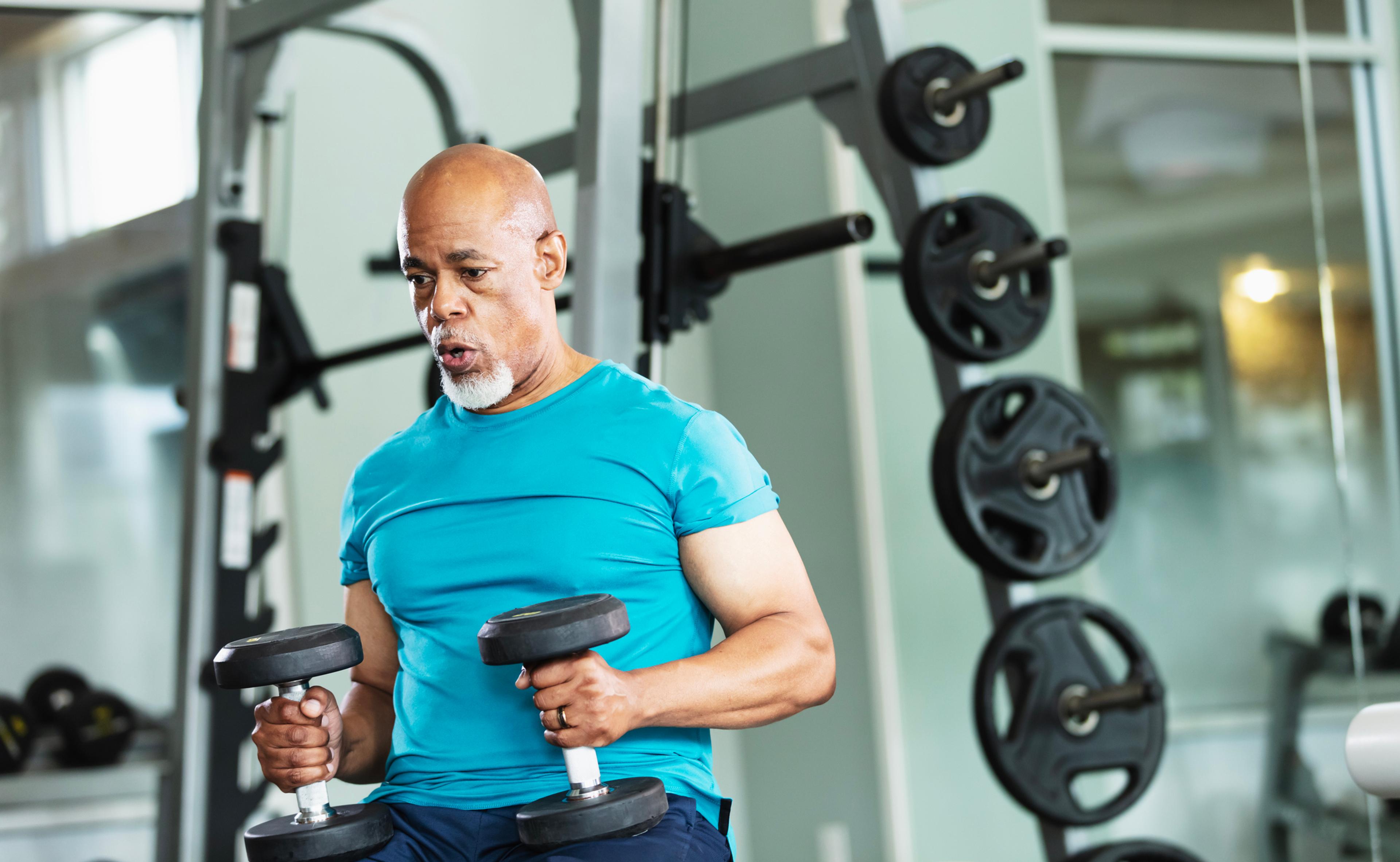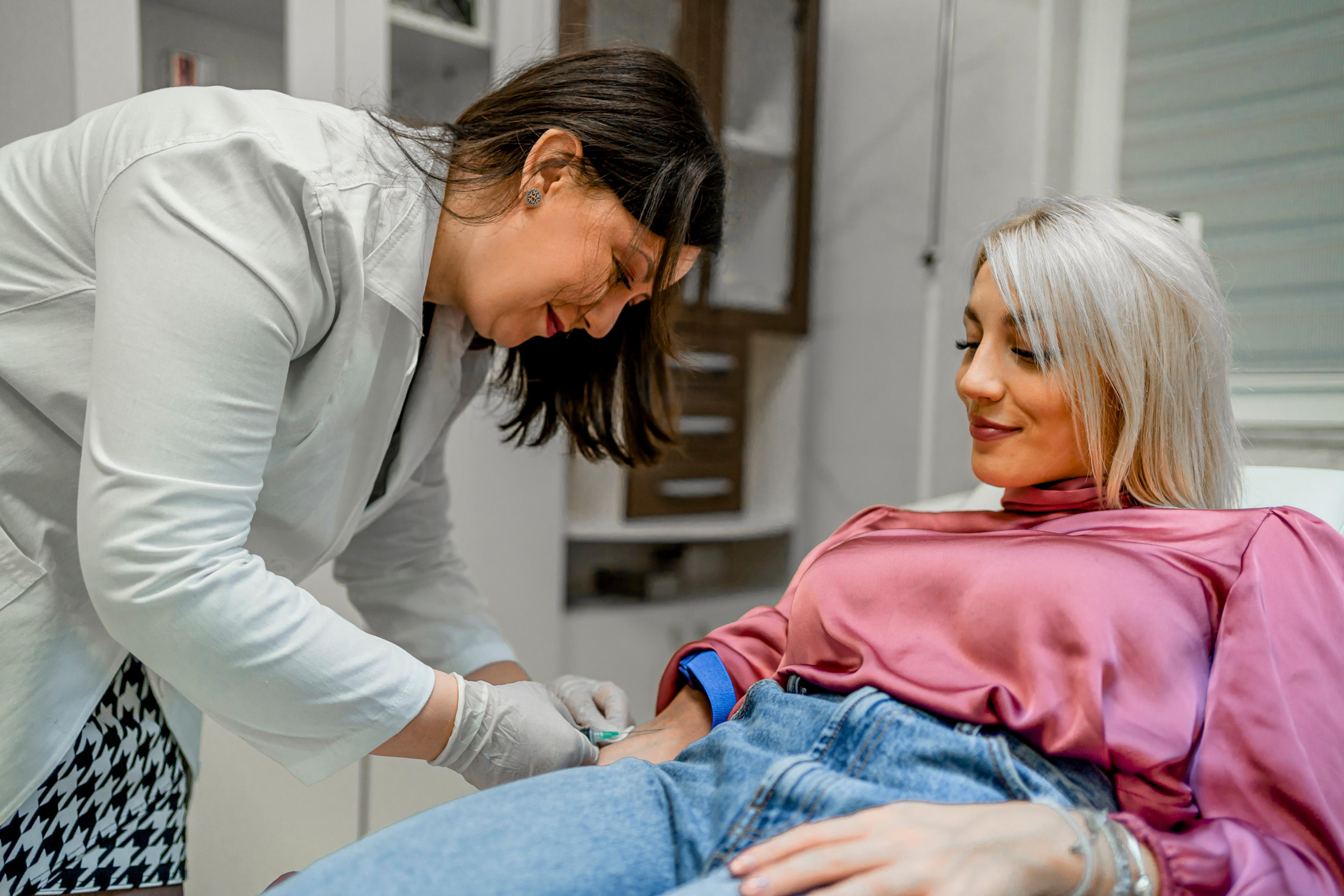How to Keep Your Bones Healthy as You Age

Lindsay Knake
| 3 min read
Lindsay Knake is a brand journalist for Blue Cross B...

Key Takeaways
- Adults can help maintain strong bones by consuming 1,000 to 1,200 mg of calcium and 600 to 800 IU of vitamin D daily, depending on age and health.
- Regular exercise, including strength training and body-weight exercises like walking and running, can help stimulate bone growth and improve bone density.
- Maintaining a healthy weight, limiting alcohol consumption and quitting smoking can also help reduce the risk of bone loss and fractures.
Starting around age 40, we lose about 1% of bone mass each year, according to Harvard Health.
While this is a normal part of aging, it’s important to create healthy habits to keep our bones strong as we get older. Here are tips for your diet and exercise routine to keep healthy bones.
Nutrition for healthy bones
The food we eat creates the building blocks for strong bones. These are minerals, vitamins and nutrients essential for the 200 bones in the human body:
Calcium
This mineral is the primary component of the strength and structure of bones, and you only get calcium through your diet.
Aim to get about 1,000 mg of calcium each day. Menopausal women and adults age 70 and older should aim for about 1,200 mg per day, according to the National Institutes of Health (NIH). Good sources of calcium include:
- Dairy milk products
- Leafy greens
- Broccoli
- Fortified foods
Vitamin D
Vitamin D helps your body absorb calcium and regulates the body’s process of replacing old bone tissue with new, according to the Cleveland Clinic. A deficiency of this mineral can lead to weakened bones.
Adults up to age 70 need about 600 IU of Vitamin D daily, and adults age 70 and older should consume 800 IU a day, according to the NIH. Good sources of Vitamin D include:
- Fatty fish
- Dairy milk
- Fortified milk alternatives
- Fortified cereal (but look for low-sugar options)
Vitamin C
This vitamin helps stimulate the production of cells in your bones and supports collagen synthesis, which is a protein that forms the structure of your bones, according to the Cleveland Clinic.
Adults should try to eat 90 mg to 120 mg of Vitamin C per day, according to the NIH. Good sources of Vitamin C include:
- Cruciferous vegetables such as broccoli and Brussels sprouts
- Cirtus fruits
- Red and green peppers
- Strawberries
Limit alcohol and quit smoking
Drinking alcohol and using tobacco products can speed bone loss. Quit smoking and keep alcohol consumption rare if you drink at all.
Exercise for bone health
Exercise is a critical part of maintaining and improving bone health. Stronger muscles can also help prevent falls, which can protect bone health.
Strength training
Weightlifting and resistance training stimulate bone growth. Providing the bones with an appropriate amount of stress helps the bones improve calcium content and activates bone-forming cells, according to Harvard Health. This creates denser and stronger bones.
Perform one or two sets of 10 to 12 repetitions of exercises such as:
- Squats
- Lunges
- Deadlift
- Pushup
- Plank
- Overhead press
- Farmer’s walk
- Plyometrics
Household chores and yardwork that involve lifting heavy objects or repeatedly lifting moderately heavy objects can provide a similar effect.
Try to add strength training to your routine two or three times a week. Talk to your primary care provider (PCP) before starting a new exercise routine.
Body weight exercises
Walking, dancing and especially running are good exercises for bone health, according to Harvard Health. Like weightlifting, these body-weight exercises strengthen bone. Adding stairs or hill climbs increases the intensity and provides a greater benefit, according to the Cleveland Clinic. Aim for 150 minutes of aerobic exercise per week, or 30 minutes a day, five days a week.
However, these only strengthen bones in the lower body and should be paired with upper body strength training for optimal bone health.
Keep a healthy weight
Being underweight can increase the risk of bone fractures and breaks in the case of a fall, and obesity is connected to weakened bones.
Those at higher risk of bone loss or osteoporosis should talk to their PCP about nutrition, a healthy exercise routine and medications to slow or prevent bone loss. If you take prescription medications, talk to your PCP about side effects that could affect your bone health.
Image: Getty Images
Related:





